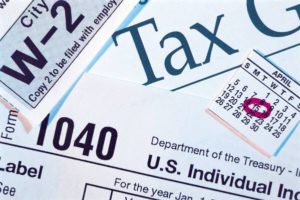 Today’s top story: Learn the truth about overdraft fees and save money. Also in the news: Beware the Dead Cat Bounce (and other stock market jargon), students breathe easy on the tax bill, and what will be more (and less) expensive in 2018.
Today’s top story: Learn the truth about overdraft fees and save money. Also in the news: Beware the Dead Cat Bounce (and other stock market jargon), students breathe easy on the tax bill, and what will be more (and less) expensive in 2018.
Learn the Truth About Overdraft Fees — and Save Money
Looking at alternatives.
Beware the Dead Cat Bounce (and Other Stock Market Jargon)
Learning the language of Wall Street.
Students Breathe Easy on Tax Bill but Other Battles Loom
A momentary reprieve.
What will be more (and less) expensive in 2018
Travel prices are going up.
 Today’s top story: 6 ways the tax plan could change homeownership. Also in the news: Bad loans lurking under Christmas wrap, checking your state’s unclaimed property list, and robocalls soar to a new record.
Today’s top story: 6 ways the tax plan could change homeownership. Also in the news: Bad loans lurking under Christmas wrap, checking your state’s unclaimed property list, and robocalls soar to a new record. Today’s top story: How that new store card could torpedo your credit score. Also in the news: Insuring expensive gifts, the right mortgage to ask, and how to quickly figure out how much spending money you’ll have for the year.
Today’s top story: How that new store card could torpedo your credit score. Also in the news: Insuring expensive gifts, the right mortgage to ask, and how to quickly figure out how much spending money you’ll have for the year. Today’s top story: 6 ways the tax plan could change homeownership. Also in the news: What the Fed rate hike means for student loans, what it means for your CDs, and how Donald Trump is shrinking your paycheck.
Today’s top story: 6 ways the tax plan could change homeownership. Also in the news: What the Fed rate hike means for student loans, what it means for your CDs, and how Donald Trump is shrinking your paycheck.